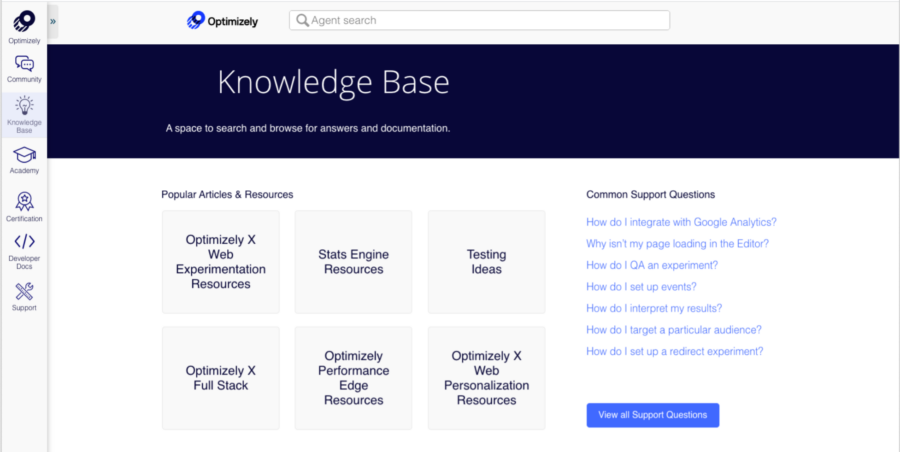Engineers and tech entrepreneurs are the new rockstars. Just about everyone can imagine the feeling of starting a tech business in your garage and one day going public for billions of dollars. It’s a dream for many of us. These days, it’s not enough to just have a good idea or even build a great piece of tech. If you want your business to be successful in 2021 and beyond, you need to have a keen understanding of what it means to be a tech entrepreneur, what solutions to use, and how the business markets work.
Net-tech employment in the United States has reached an estimated 12.1 million in 2019, increasing nearly 23 percent during the decade.

Source: cyberstates.org
In 2021, the tech industry is expected to boom more than ever, opening many doors to new people wanting to become tech entrepreneurs. The possibilities are endless, ranging from building an industry-shaping product to building your own SaaS platform, and everything in between. It is estimated that by 2028, the tech industry employment is expected to grow by an additional 10.5%.

Source: cyberstates.org
There simply is a lot of room for new entrepreneurs to succeed by entering the industry and get their share of success. But how to do it?
This post answers that question in detail. Let’s start with understanding the roles and responsibilities a tech entrepreneur has to perform.
What Does a Tech Entrepreneur Do?
In simple terms, tech entrepreneurs build businesses that are powered by technology and innovation that aim to solve real customer problems.
In recent years, this concept has evolved and is not limited to building big companies we’ve come to love like Facebook, Google, and Airbnb. Tech entrepreneurship is about building technology for just about anything and at any size. Whether a web development firm, SaaS application, e-commerce business, or digital marketing agency — to become a successful tech entrepreneur, you have to know how to create the technology and reach your target market.
How to Become a Successful Tech Entrepreneur?
The journey towards becoming a tech entrepreneur requires you to be highly focused, disciplined, follow the habits that make entrepreneurs successful and have a good support system along the way. Despite all of this, it can be done with the right amount of planning and guidance.
You might already be an entrepreneur. Or maybe you aspire to be one. Either way, prepare for a long journey, especially with a competitive niche like tech, you need to commit to your idea if you want to succeed.
So you have a great idea for an app or a tech product and want to turn it into reality. Great! But before you dive in, ask yourself these questions:
- Is there a real customer need?
- Will people use this product or service?
- Am I passionate about technology and entrepreneurship?
- Have I done anything like this before?
- What are my strengths and weaknesses when it comes to marketing and business?
- How much time am I willing to put into this project each day to make it succeed?
Only after you’ve answered these and other questions for yourself will you be ready to take the next step, which is putting your business on the ground.
Let’s explore the steps you need to take to become a tech entrepreneur and succeed at it!
#1 – Come Up with an Idea
The foundation of your tech business will be based on a business idea that addresses a real customer pain that people are willing to pay you to solve.
This is one of the most challenging steps, yet the most important one. It’s not enough to be good at coding or math. Instead, you should focus on what problem your product will solve and who will benefit from it. This could be something as big as global warming or something as simple as a smartphone charger.
Ask yourself these questions and write down your answers for clarity:
- Is there a problem you can solve for people?
- Is there a market for your product or service?
- Are people going to pay for what you plan to create?
You cannot create a sustainable business unless you know what problem your product solves and who it helps. Focus on coming up with an idea that will solve a need, rather than just focusing on your skills or interests.
#2 – Set up Your Business for Launch
Once you get an idea of what business idea you want to work on, you’re ready to launch. No, wait, not exactly. Before you jump into the market, there are some things you need to work on. Let’s discuss them in detail.
Start with Customer Development
Customer development is the process of talking to potential customers, before you launch your business, to understand if they have the problem you seek to solve. This largely involves one-on-one interviews. There are tons of resources available about customer development, but in a nutshell, you’ll want to keep these things in mind:
- Never tell potential customers the problem you plan to solve or the solution you are building – ask open-ended questions to get them to confirm the problem and suggest the solution. This will help you avoid false positives and give you more confidence your idea is on the mark.
- Ask people to tell you stories about how they work, live or play – stories are a great way to hear about the problems people have and the ways they’ve attempted to solve them. This is the best approach to learning about real customer needs without leading people to your idea directly.
Make a Business Plan
When starting a new business, there is always a learning curve. It is better to take time, in the beginning, to study the niche or industry and come up with a plan or strategy for the coming months or years. A well-structured business plan can double the chances of success.

A business plan typically includes market analysis, organization, and marketing plan, details of your new product or service, operation plan, and financial planning.
Other than that, here are a few other aspects your business plan might cover:
- Determine your niche
You may not want to start a company for everything under the sun, so try narrowing down on one specific area of expertise that will keep your focus tight and successful. - Analyze competition
Know who your competitors are before embarking on this endeavor. Find out their strengths and weaknesses, as well as how they market themselves to find any gaps in their strategies that you could potentially exploit. - Develop an outline of success
The most crucial element in building a successful business plan is being prepared to prevent mistakes from occurring later down the line when time constraints might force them upon you. Make sure we are well prepared with your online for success.
Don’t hesitate to make your business plan as detailed as possible. Gaining clarity right at the start will help you execute well down the lane.
Secure Funding
The start-up costs for a new business can be daunting and it’s crucial to have a source of funding to execute operations. There are many sources of capital available, but your best bet is probably going with an angel investor or equity crowdfunding.
Angels often invest their personal funds in exchange for equity in the company. Equity crowdfunding brings together investors into one pool of money that’s used for a specific campaign. With both options, don’t forget to consider how much you’re willing to give up when you cash out down the line!
Here are some other possible options to secure funding for your tech startup:
- Raising a business loan or line of credit
- Self-funding from saving accounts or tapping into the 401k
- Using crowdfunding or Kickstarter
Everyone knows that Silicon Valley is full of tech-entrepreneurs who started with a little funding and have made it big with their innovative and paradigm-shifting products. Don’t let your head swell up too much. Start small.
Find a funding source that works for you and make sure to follow all the legal considerations associated with raising funds from a third-party source. There are plenty of online legal services available to streamline things for you.
Register Your Business
The location and the structure of your business will be the determining factors while you’re registering your business. Many small companies can be registered with state and local governments.
You also need to work out your business structure; some of the most preferred options are sole proprietorship, partnership, corporation, and limited liability company (LLC).
Deciding which business structure is best for you requires thorough planning and research. Make sure you do your research before finalizing one.
Get a Patent if Needed
If you have built an innovation that’s unlike any currently available product, it may be necessary to get a patent. A patent is a government authority or license conferring a right or title for a set period, especially the sole right to exclude others from making, using, or selling an invention. If you have a product that is worth patenting, you should go ahead and do it.
Patenting is especially useful for tech products that hold a marginal replication value. For example, if you have competitors in the space that can copy your technology to build products, a patent will help you get licensing revenue.
#3 – Market Your Business
One of the biggest challenges of a new start-up is customer acquisition. According to a survey conducted in November 2020, 13% of small business owners report that attracting new customers is a higher challenge and the main difficulty in making money online.

Being successful as a tech entrepreneur requires knowledge and understanding of effective marketing strategies to avoid failures. Given below are some of the most effective marketing strategies that you can use to grow your tech business.
Content Marketing
Content marketing includes creating and publishing high-quality content to resolve people’s problems. A content strategy will help you decide how and where do you plan to build your online presence. It is a long-term strategy and might take time, but strategic content creation will help you build a strong presence online.
Create amazing content. Don’t waste time developing mediocre content. Set a budget and take time to craft content that engages people and compels them to come back for more.
18% percent of marketers report content marketing as one of the most effective marketing methods. Many tech businesses use content marketing techniques to build a powerful knowledge base on their website providing valuable insights about their technology to their audience along with attracting traffic from search engines.

Paid Ads
Many social media platforms allow users and small businesses to promote to their audience. Close to 2 million small businesses advertise on Facebook and there are 40,000 Google queries every second. The opportunity to reach out to millions of people is possible through paid ads.
You can generate leads using paid ads and even run offers that can help you convert using Google ads and Social Media paid ads.
Use Google My Business
If you cater to a specific local area, the best strategy is to list your business in Google My Business (GMB) and aim to rank on Google’s first page. To get results with this strategy, once listing your business, start collective reviews and citations to rank in the top results. You can list your business in other significant directories as well, such as:
- Yelp
- TripAdvisor, Angie’s List, etc.
- Better Business Bureau
- Glassdoor
- Yellow/White Pages
- Bing
Social Media Marketing
Organic social media traffic is free and can build up over time. Building social profiles and connecting with customers through social media will help you engage your audience, generate leads and focus on community building.
Your social media marketing campaigns can be outsourced to an expert. You can also use the various available social sharing tools to automate your efforts.
LinkedIn prospecting is another method to generate leads through social media. The platform is full of business owners and entrepreneurs to connect with and could be a great source for building an audience for your tech business.
Email Marketing
Collecting emails and building an email list is another useful and profitable marketing strategy. An email list is not dependent on the ups and downs of traffic like search engines.
You can promote and market your products through strategic email marketing campaigns. Once you understand how to do email marketing, the opportunities to take your tech business to the masses are endless.
Join Online Communities
Private groups or communities relevant to your business will make you gain exposure and get cooperation from others. The leading platforms with online communities such as LinkedIn, Reddit, and Facebook include many subcommunities specifically related to tech business and tech-driven products.
Add value to these communities to build a network of people who might turn into your customers.
Promote your Business in Local Communities
If it applies to your business, use local blogs, newspapers, and online publications to promote your start-up. Use press-releases and attend local events. Even magazines and local radio could be an option.
Be Persistent and Patient
The road to success is full of obstacles and problems. Most people do not see success because they give up too soon. It may take several months or even a few years to build a stable and profitable business.
When starting a new business, there are always risks involved. Failure and success are part of the game. A persistent tech entrepreneur doesn’t stop at the first sign of a problem. You need to stay in the game for long enough to fail, try again, and keep trying until you succeed.
Here some great tips to help you be persistent in your journey:
- Push your dream and vision through
You have to be willing to do what it takes to realize your dreams. If you are not prepared to do it, chances are you won’t arrive too far. - Do not listen to naysayers
There is always someone on the journey to success who will try to pull you down. The trick is to use them to your advantage and use them as motivation. Get used to the fact that it will happen and continue to grow. - Surround yourself with positive people
It is also true that having support from others will help your business succeed. Many have their spouse pushing them and encouraging them. Others have friends or partners. It is vital to be surrounded by people who push you up.
#5 – Hiring
Hiring is an integral part of building a successful tech business. You need to build a smart, experienced, and trustworthy team that helps you achieve your vision.
To avoid picking the wrong people, you need to create a process, especially if you are new to leadership and hiring. Here are some tips for hiring tech personnel:
- Be extra clear about the technical skills required for the job
- Attract the right talent by tailored job descriptions and postings. Don’t hesitate to talk about your start-up vision for the latest technology, better work-life balance, and positive company culture.
- Use social media platforms to boost your reach and attract better applicants
For the parts of your business that require outsourcing, you can hire experienced freelancers from platforms like Upwork, Fiverr, and PeoplePerHour.
There are other platforms where you can find rising tech talents like Dice.com, Crunchboard.com, GitHub, TechCareers, and IT Job Pro.
Once you have found a suitable candidate, make sure you select them based on what they have accomplished in their past projects and the necessary expertise to do the new job.
Takeaway
There has never been a better time to become a successful tech entrepreneur; the tech industry is booming and it isn’t going to slow down anytime soon.
Along with having the technical expertise, you would need to have strong leadership, keen vision, passion, innovation, humility, and persistence to succeed in your business.
There isn’t a sure formula for entrepreneurial success, but there are proven methods that others have used with excellent results. An idea backed up by hard work, education, marketing strategies, exceptional team members, and the willingness to solve problems will aid you in your journey.
Good luck!
Business & Finance Articles on Business 2 Community
(84)
Report Post





